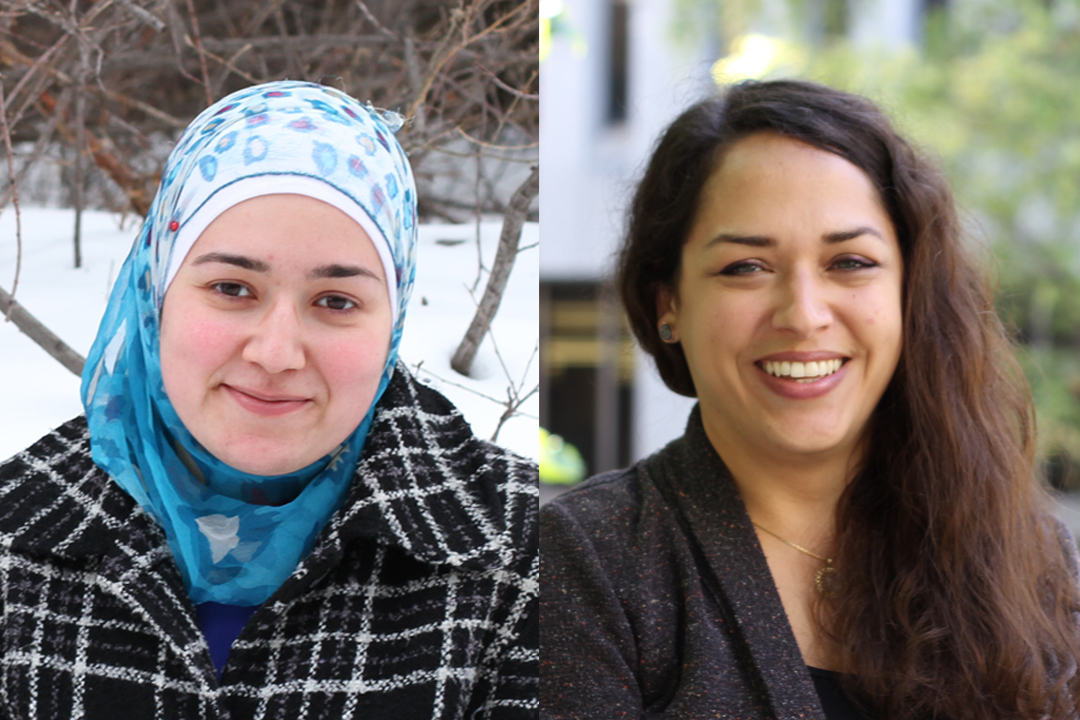
Faith Leaders’ Council supports spiritual wellness of community
The University of Saskatchewan has formalized its relationship with communities of faith by forming a Faith Leaders’ Council and developing a soon-to-be-signed memorandum of understanding between the university and many local religious groups.
By Emily MooneyThe leaders on the council represent Baptist, Ecumenical Christian (Anglican, Presbyterian and United), Hindu, Jewish, Lutheran, Mennonite, Ahmadiyya Muslim, Sunni Muslim, Redeemed Christian Church of God, Roman Catholic, Sikh, Ukrainian Catholic and Unitarian communities.
Meera Kachroo, research associate with the Office of the Vice-Provost Teaching, Learning and Student Experience, said the council was formed in order to foster connections between the university, its students and local religous communities, as well as to show support for inter-faith respect and understanding.
“The establishment of the Faith Leaders’ Council represents an investment in the spiritual wellness of our university community,” said Kachroo. “In the past, this work has been referred to as chaplaincy, but we wanted to mark a movement away from this Christo-centric language to something more inclusive and representative of the work and qualifications of the diverse faith traditions in our local community.”
Asit Sarkar, professor emeritus at the Edwards School of Business and vice-president of the Hindu Society of Saskatchewan, was pleased to see the U of S recognize the need to update the spiritual resources on campus.
“The student community has become a lot more diverse now in terms of faith and culture,” said Sarkar. “Once you have diversity, I think there are a lot of misunderstandings that arise simply because of lack of awareness. So, the university thought that this might be a good initiative to respond to the diversity.”
Sarkar is representing the Hindu community on the council, which also includes student representatives from the U of S Students’ Union and the Graduate Students’ Association (GSA). His goal is to create greater awareness of faith diversity and to promote how council leaders can be helpful to students’ learning experience.
Sarkar said the council has met twice this academic year and is in the process of finding ways to foster communication and inclusivity between the faith communities.
“Every member of the council is trying to find some common grounds among all faiths,” said Sarkar. “I think faith is something that, if you really look at the basics, is the same everywhere. People want to find a source where you can find some mental peace.”
Naheda Sahtout is the graduate student representative on the council. She is a PhD student in the Department of Chemistry, the GSA’s vice-president external, and part of the Muslim community. Like Sarkar, Sahtout recognizes the efforts of the Faith Leaders’ Council as a means to bring different groups together.
“By having this Faith Leaders’ Council, you see the leaders of each faith being in the same room together, democratically speaking about something, and hosting events together,” said Sahtout. “So that sets the tone for the younger generation. Being able to participate in these events is a great opportunity for students to ask questions, to meet other people of different religions and different faiths and to just be able to understand how other people’s faiths influence them.
“The faith leaders are not trying to promote their religion, they’re trying to be there for students who might value religion and want that opportunity to have someone to discuss it with,” continued Sahtout.
Both Sarkar and Sahtout emphasize the council’s focus on student needs.
“I think we all share the same view, that in whatever we do it’s not for us as faith group leaders, it is for the students,” said Sarkar. “Any activity that we do needs to be student-need driven and hopefully student led with our support and help.”
Sarkar cited many examples of how the different faiths on the council are encouraging a sense of community on campus, and encouraging awareness, comfort and friendship. This will play an important role in the university’s Wellness Strategy, which focuses on three elements: healthy mind, healthy body, and healthy life. Spirituality is a key component of healthy mind, body and life.
“In a particular period of troubling times, people think that all students of Hindu faith would go to the Temple or all Muslim students would go to the Mosque,” said Sarkar. “It doesn’t necessarily happen. They immediately look for some solace among their peers.”
Sahtout said sometimes people are hesitant to talk about their mental health issues and that some students find it reassuring to know there are faith leaders that they can talk to in confidence. That is why it is important for students to be aware of the resources on campus such as the faith leaders.
“Having that support system is definitely important with a lot of students, especially those that are religious and coming from international backgrounds,” said Sahtout.
Sarkar said that the university recognizes the connection between faith leaders and mental and spiritual health, and he enjoys the close association that has developed between faith leaders and Peer Health Support.
The Faith Leaders’ Council is located in the refurbished space on the main floor of Marquis Hall, near the University Bookstore.
Visit wellness.usask.ca/faithleaders to learn more about university faith leaders.
Emily Mooney is a student intern with the Office of the Vice-Provost Teaching, Learning and Student Experience.

